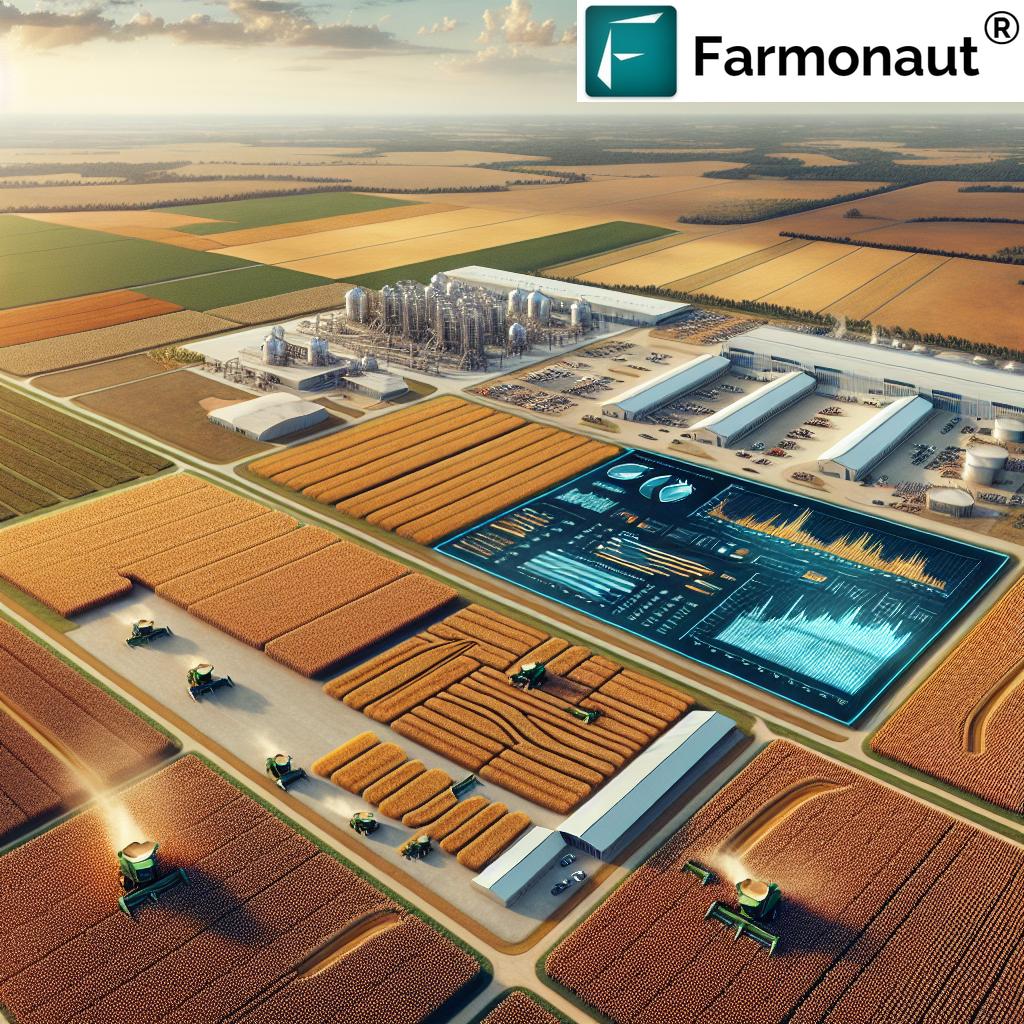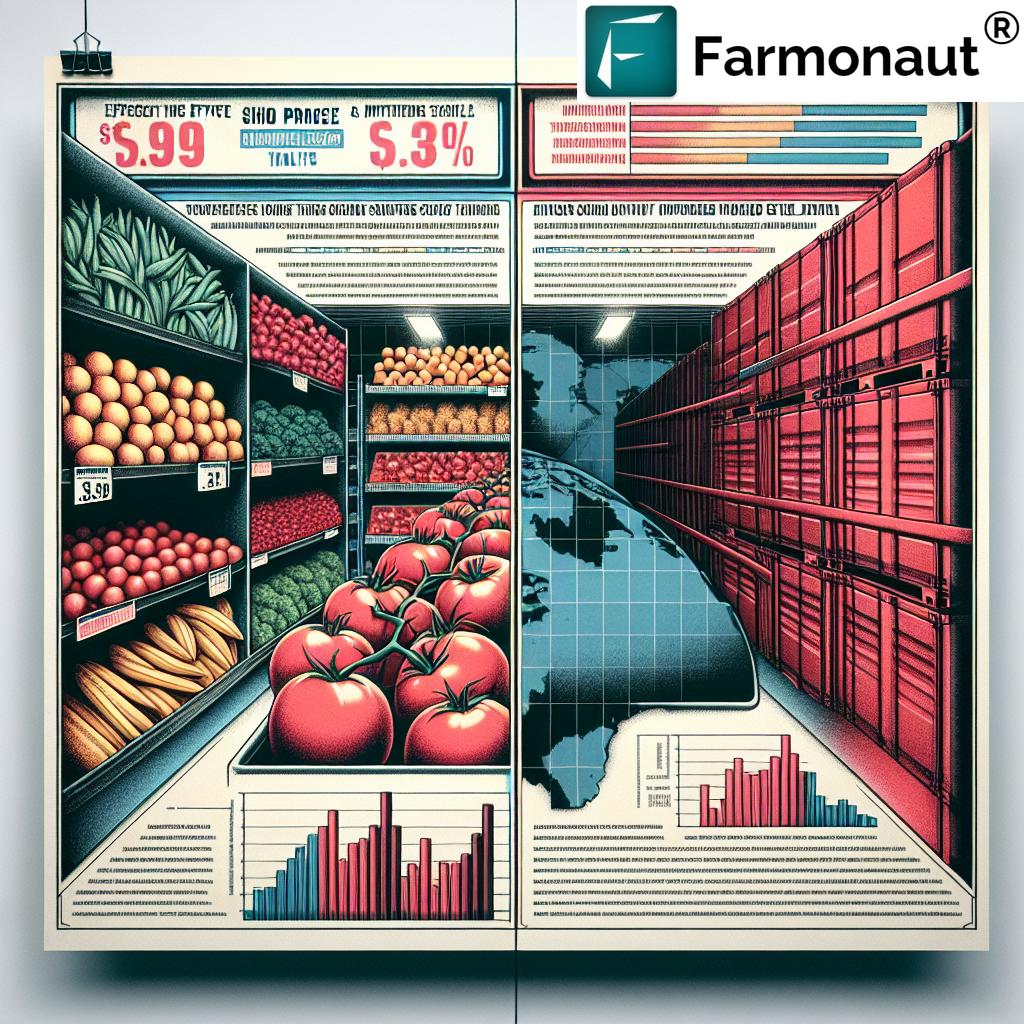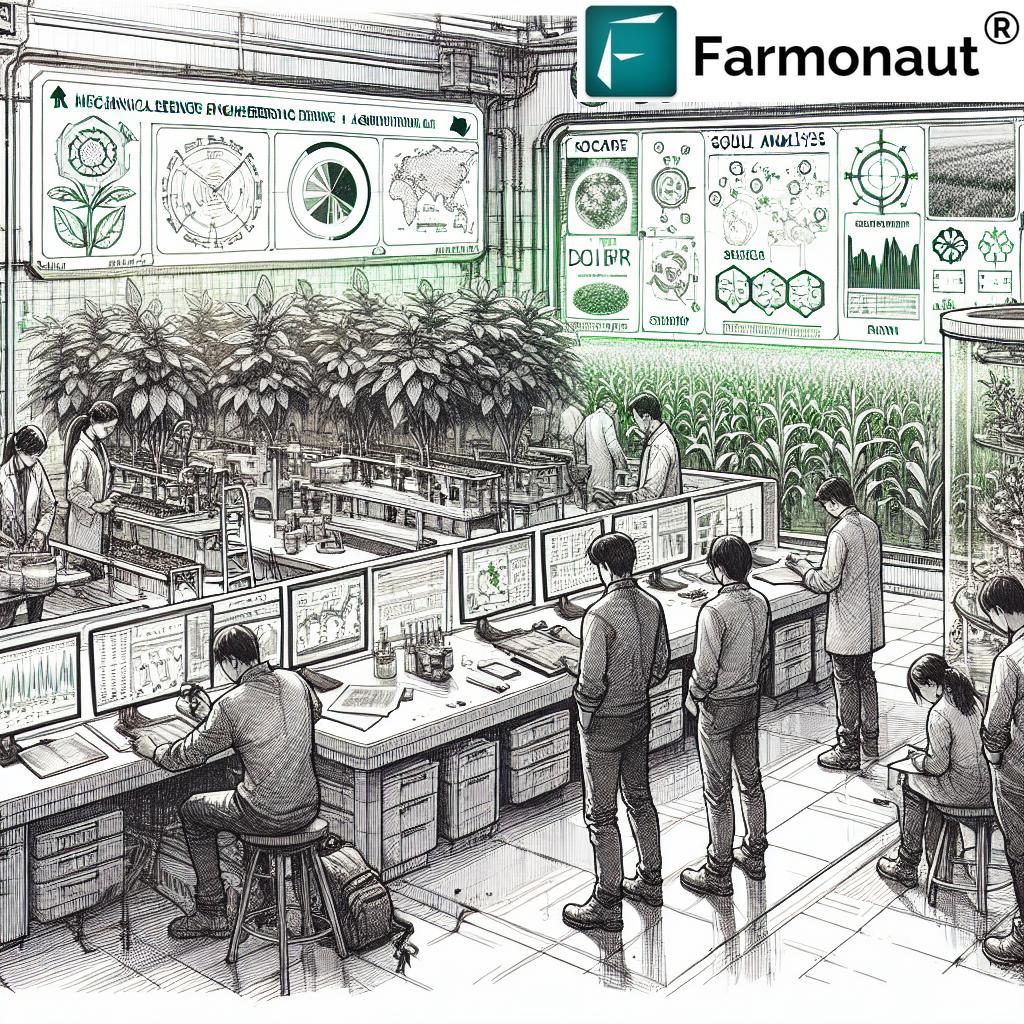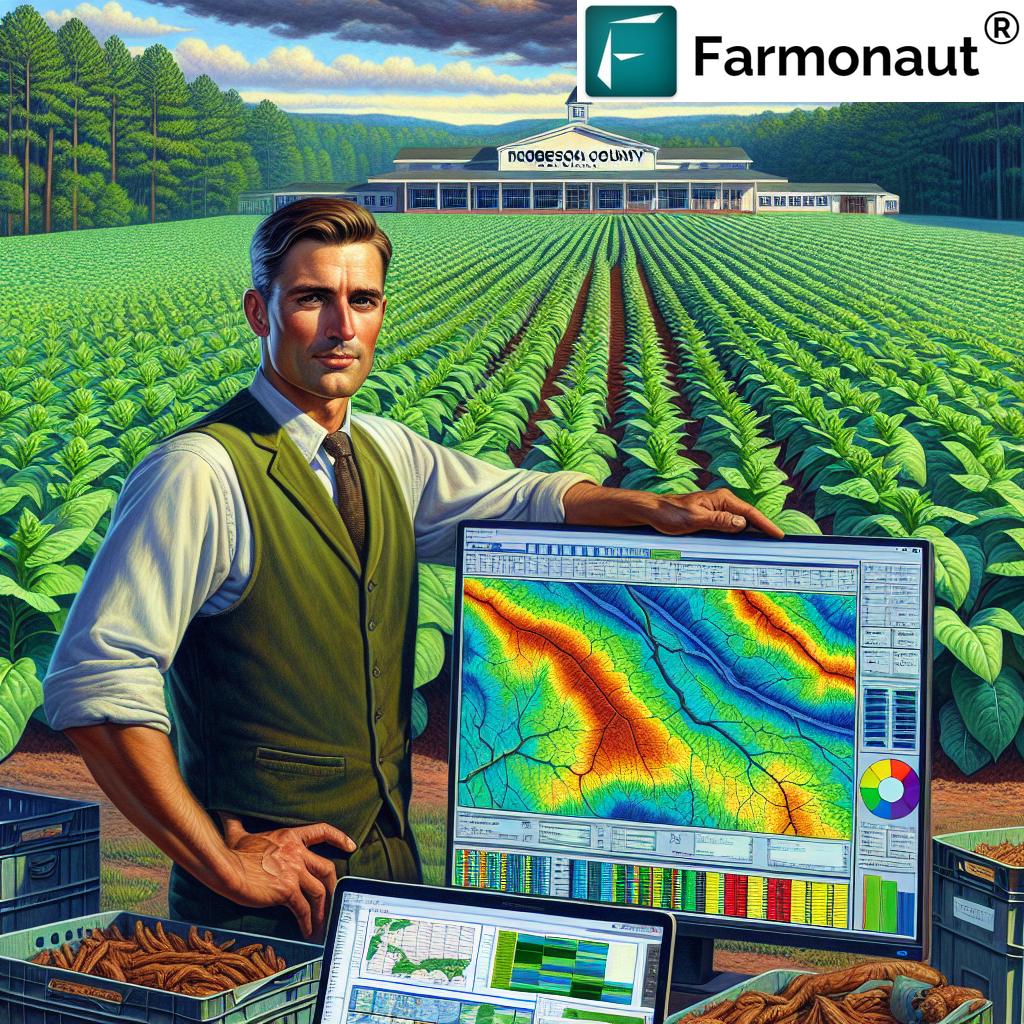Advancing Agricultural Sciences: Diversity, Equity, and Inclusion in Crop Research at Kansas State University
“Kansas State University’s crop research programs involve over 20 different plant species, advancing agricultural diversity.”
Welcome to our comprehensive exploration of agricultural sciences diversity and crop science innovation at Kansas State University. As we delve into the future of farming, we’ll uncover how the Crop Science Society of America is championing diversity, equity, and inclusion in agricultural research and education. Our journey will take us through the corridors of cutting-edge research centers, state agricultural departments, and university campuses, where the latest trends in modern agriculture are shaping our world.
The Evolution of Agricultural Sciences at Kansas State University
At Kansas State University, we’ve witnessed a remarkable transformation in agricultural sciences over the past decade. Our commitment to diversity in agriculture has been a driving force behind crop science innovation, pushing the boundaries of what’s possible in sustainable farming practices and precision agriculture techniques.
- Interdisciplinary approach to agricultural research
- Integration of advanced technologies in crop science
- Focus on sustainable and resilient farming systems
The Department of Agronomy at Kansas State University has been at the forefront of this evolution, fostering an environment where diverse perspectives contribute to groundbreaking soil science research. Our state-of-the-art facilities in Throckmorton Hall have become a hub for scientists from various backgrounds to collaborate on crop yield optimization projects.

As we continue to advance our understanding of plant science and soil management, we recognize the importance of agricultural technology advancements in driving progress. This is where innovative platforms like Farmonaut come into play, offering satellite-based farm management solutions that complement our research efforts.
Explore Farmonaut’s cutting-edge agricultural solutions:
Diversity, Equity, and Inclusion: The Cornerstone of Modern Agricultural Research
The Crop Science Society of America has taken significant strides in promoting diversity, equity, and inclusion within the agricultural sciences community. This commitment is reflected in the composition of research teams, the focus of studies, and the outreach programs designed to engage underrepresented groups in agriculture.
- Establishment of diversity and inclusion committees
- Mentorship programs for underrepresented students
- Research grants specifically targeting diverse teams
At Kansas State University, we’ve implemented these initiatives across our agricultural sciences programs, from the College of Agriculture to the Department of Plant Pathology. Our efforts have led to a more inclusive environment that fosters innovation and prepares the next generation of diverse agricultural leaders.
As we embrace diversity in agriculture, we’re seeing a parallel in the technological tools we use. Farmonaut’s API, for instance, provides a platform for developers from various backgrounds to integrate advanced agricultural data into their own systems, fostering innovation across the industry.
Explore Farmonaut’s API capabilities: Farmonaut Satellite API
Sustainable Farming Practices: A Diverse Approach
Sustainability in agriculture is not just about environmental stewardship; it’s about creating resilient systems that can adapt to changing climates and societal needs. At Kansas State University, our diverse research teams are developing sustainable farming practices that address the unique challenges faced by different communities.
- Water conservation techniques for arid regions
- Integrated pest management strategies for organic farms
- Crop rotation systems that enhance soil health
These initiatives are supported by precision agriculture techniques that allow for targeted resource management. Tools like Farmonaut’s satellite-based crop health monitoring system provide farmers with real-time data, enabling them to make informed decisions that optimize crop yields while minimizing environmental impact.
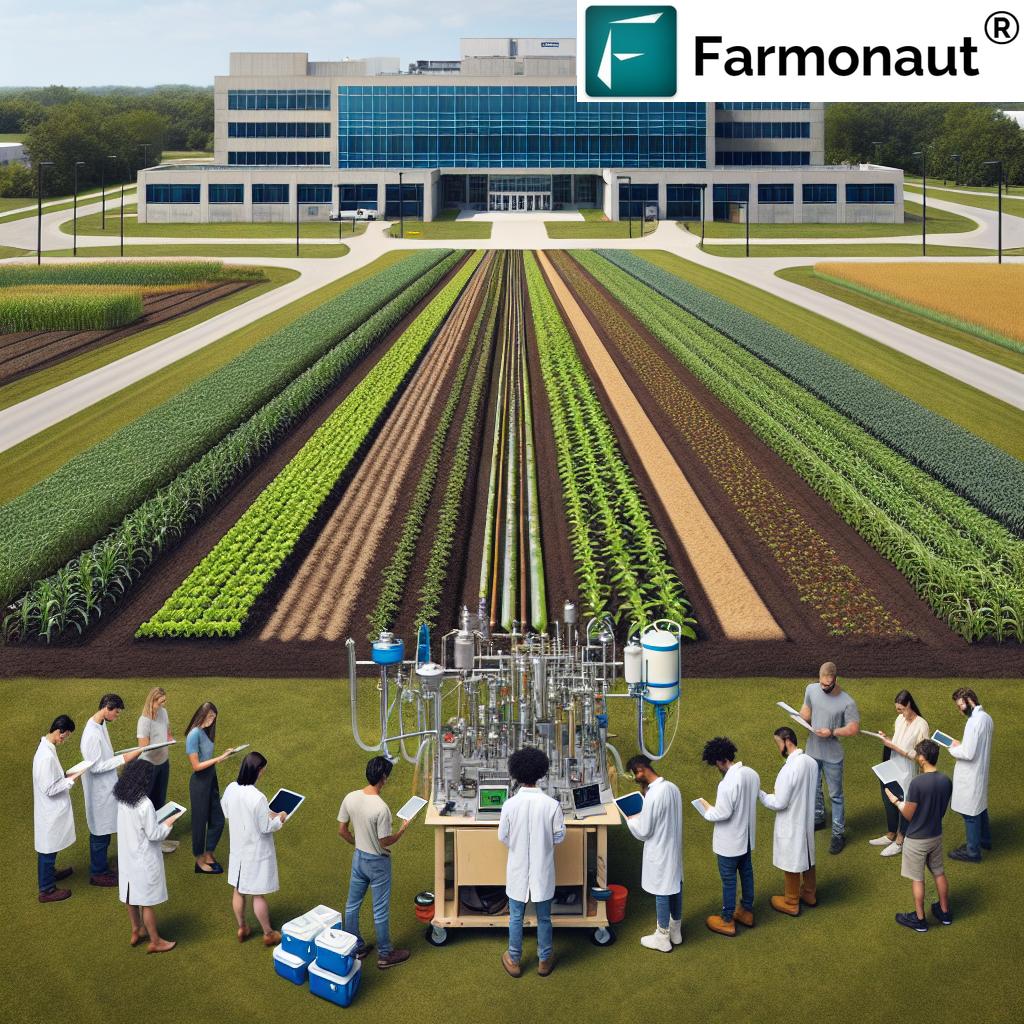
“The Crop Science Society of America has increased diversity in leadership roles by 30% over the past decade.”
Soil Science Research: The Foundation of Agricultural Innovation
Soil science research at Kansas State University is a testament to the power of diverse perspectives in driving agricultural innovation. Our teams, composed of scientists from various cultural and academic backgrounds, are making significant strides in understanding soil health and its impact on crop yield optimization.
- Advanced soil microbiome studies
- Nutrient cycling in different agricultural systems
- Soil carbon sequestration techniques
This research is complemented by agricultural technology advancements that allow for precise soil analysis and management. Farmonaut’s platform, for instance, provides valuable insights into soil moisture levels, helping farmers make data-driven decisions about irrigation and resource allocation.
For developers interested in integrating soil data into their applications: Farmonaut API Developer Docs
Agricultural Data Analysis: Empowering Diverse Decision-Making
The field of agricultural data analysis has been revolutionized by the inclusion of diverse perspectives and advanced technologies. At Kansas State University, we’re leveraging big data and machine learning to gain deeper insights into crop performance, weather patterns, and market trends.
- Predictive modeling for crop yield forecasting
- Geospatial analysis for precision agriculture
- Artificial intelligence in pest and disease detection
These analytical capabilities are enhanced by platforms like Farmonaut, which provide farmers with access to satellite imagery and AI-driven insights. This democratization of technology ensures that farmers from all backgrounds can benefit from advanced agricultural data analysis.
Agronomy Education Resources: Cultivating Diverse Talent
As we strive to create a more inclusive agricultural sector, providing accessible agronomy education resources is crucial. Kansas State University offers a wide range of programs and materials designed to engage students from all backgrounds in the field of agricultural sciences.
- Online courses in crop science and soil management
- Summer internship programs for underrepresented students
- Collaborative research opportunities with international institutions
These educational initiatives are supported by technological tools that bring the classroom to the field. Farmonaut’s platform, for example, serves as an excellent learning resource for students to understand the practical applications of remote sensing in agriculture.
Comparative Analysis of Diversity Initiatives in Agricultural Sciences
| Institution | DEI Programs in Agriculture | % Underrepresented Groups | Notable Research Projects | DEI Funding (est.) | Industry Partnerships | Outreach Programs |
|---|---|---|---|---|---|---|
| Kansas State University | Diversity in Agronomy Initiative | 25% | Drought-Resistant Crop Development | $2.5M | Agri-Tech Diversity Alliance | Rural Youth in Agriculture Program |
| University of Florida | Inclusive Agriculture Scholarship | 30% | Sustainable Citrus Production | $3M | Diversity in Crop Science Forum | Urban Farming Initiative |
| University of California, Davis | Multicultural Perspectives in Agriculture | 35% | Climate-Adaptive Viticulture | $3.5M | Diverse Agribusiness Incubator | Farmworker to Scientist Program |
| Auburn University | Equity in Agricultural Sciences | 22% | Precision Poultry Farming | $2M | Southern Ag Diversity Network | Rural STEM Education Outreach |
| Washington State University | Indigenous Agriculture Program | 28% | Sustainable Wheat Breeding | $2.8M | Pacific Northwest Ag Inclusion Coalition | Tribal Youth in Agriculture Mentorship |
The Future of Agricultural Sciences: Embracing Diversity and Technology
As we look to the future, it’s clear that the success of agricultural sciences will depend on our ability to embrace diversity and leverage cutting-edge technology. At Kansas State University and institutions across the nation, we’re committed to fostering an inclusive environment that drives innovation in crop science, soil management, and sustainable farming practices.
The integration of platforms like Farmonaut into our research and education programs exemplifies how we’re bridging the gap between traditional agricultural knowledge and modern technological solutions. By providing accessible tools for satellite-based crop monitoring and AI-driven insights, we’re empowering farmers from all backgrounds to participate in the agricultural revolution.
As we continue to advance agricultural sciences diversity and promote crop science innovation, we invite you to join us in this exciting journey. Whether you’re a student, researcher, or industry professional, there’s a place for you in the diverse and dynamic world of modern agriculture.
Farmonaut Subscriptions
Frequently Asked Questions
Q: How is Kansas State University promoting diversity in agricultural sciences?
A: Kansas State University is implementing various initiatives, including diversity committees, mentorship programs for underrepresented students, and research grants targeting diverse teams. These efforts aim to create a more inclusive environment in agricultural research and education.
Q: What role does technology play in advancing agricultural sciences?
A: Technology plays a crucial role in modern agriculture. Advanced tools like satellite imagery, AI-driven analytics, and precision farming techniques are revolutionizing how we approach crop management, soil science, and sustainable farming practices.
Q: How can students from diverse backgrounds get involved in agricultural sciences?
A: Students can participate in summer internship programs, online courses in crop science and soil management, and collaborative research opportunities. Many universities, including Kansas State, offer specific programs designed to engage underrepresented groups in agriculture.
Q: What are some key areas of focus in current agricultural research?
A: Current research focuses on sustainable farming practices, soil health, crop yield optimization, climate-adaptive agriculture, and the application of big data and AI in farming. These areas are crucial for addressing global food security challenges.
Q: How is the Crop Science Society of America contributing to diversity in the field?
A: The Crop Science Society of America has increased diversity in leadership roles and is actively promoting inclusive policies and practices within the agricultural sciences community. They support diverse research teams and outreach programs to engage underrepresented groups in agriculture.
As we conclude our exploration of agricultural sciences diversity and crop research at Kansas State University, we hope you’ve gained valuable insights into the exciting developments shaping the future of farming. Remember, the field of agriculture is vast and continually evolving, offering numerous opportunities for individuals from all backgrounds to contribute and make a difference.
For those interested in staying at the forefront of agricultural technology, we encourage you to explore the innovative solutions offered by platforms like Farmonaut. Their satellite-based farm management tools represent the kind of cutting-edge technology that’s transforming modern agriculture.
Together, we can cultivate a more diverse, equitable, and innovative agricultural sector that’s prepared to meet the challenges of tomorrow. Join us in advancing agricultural sciences and creating a sustainable future for all.





